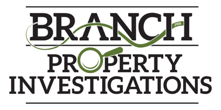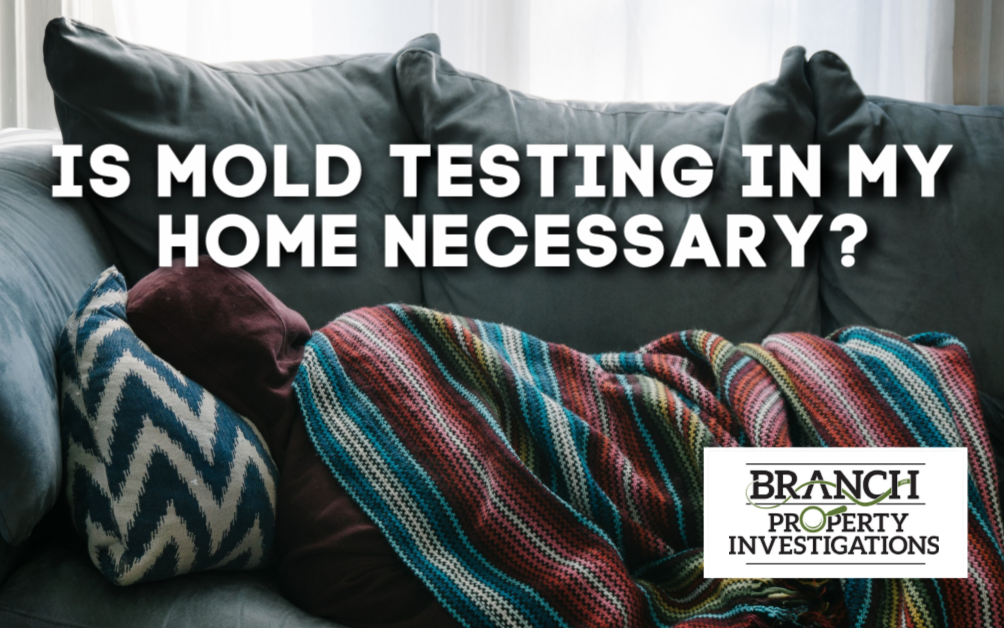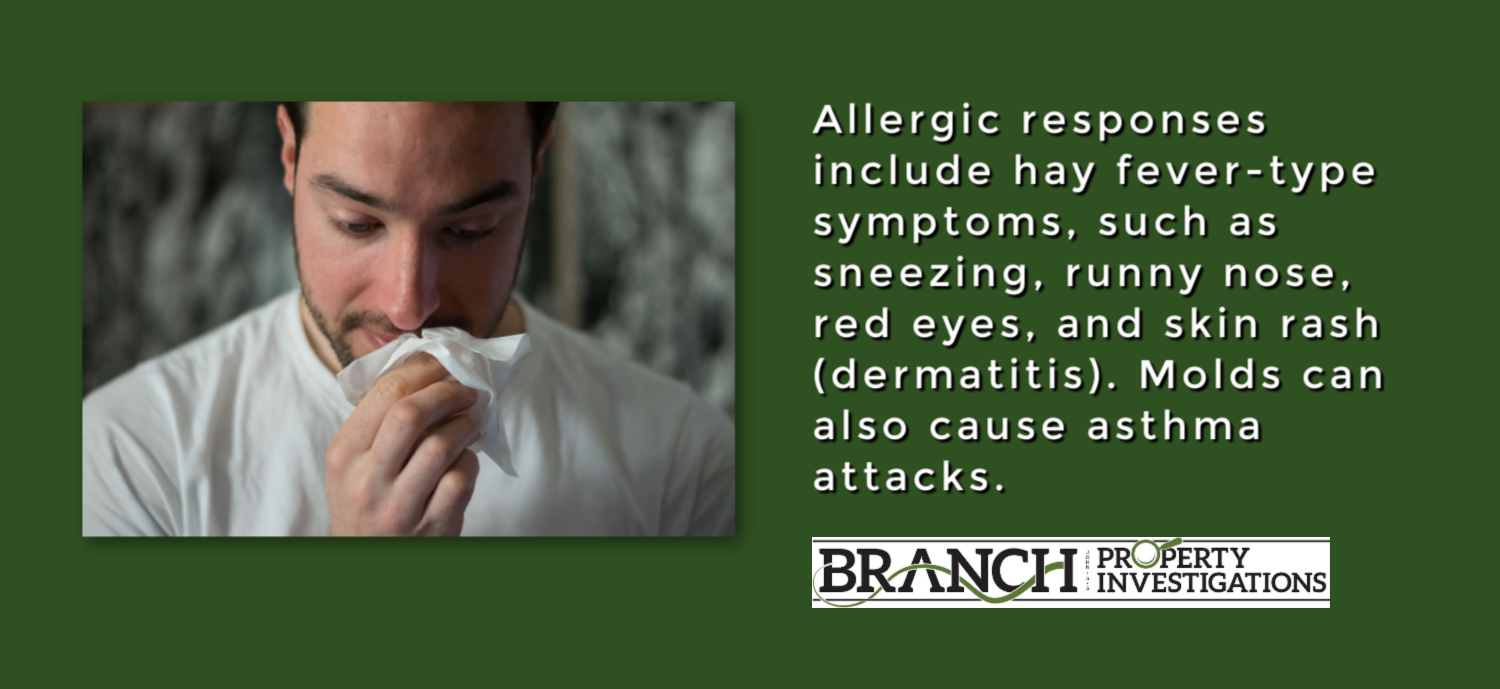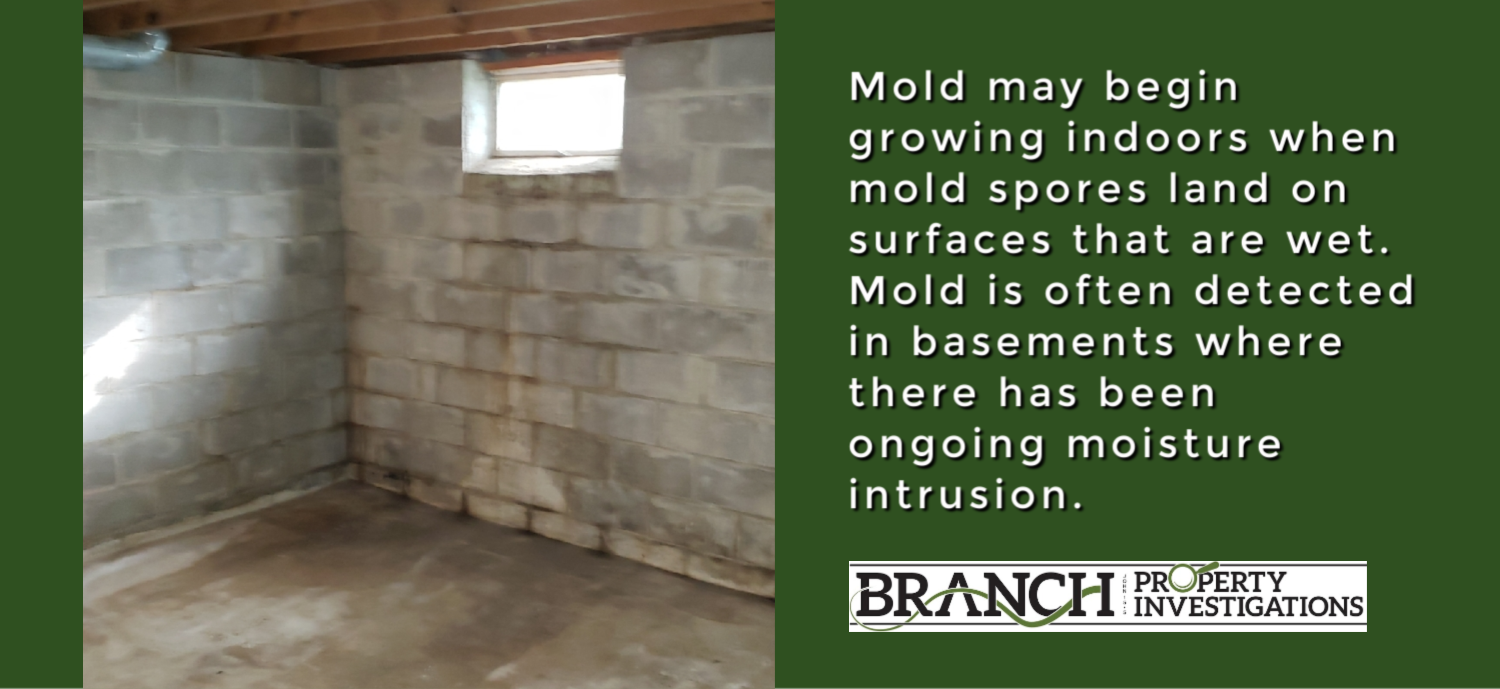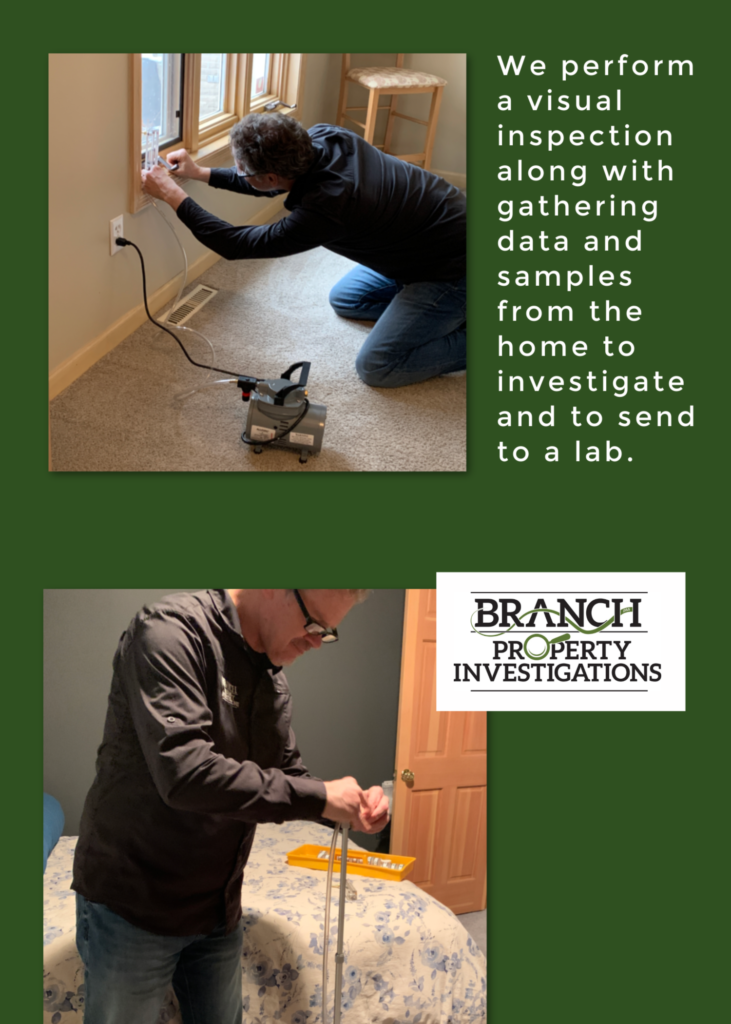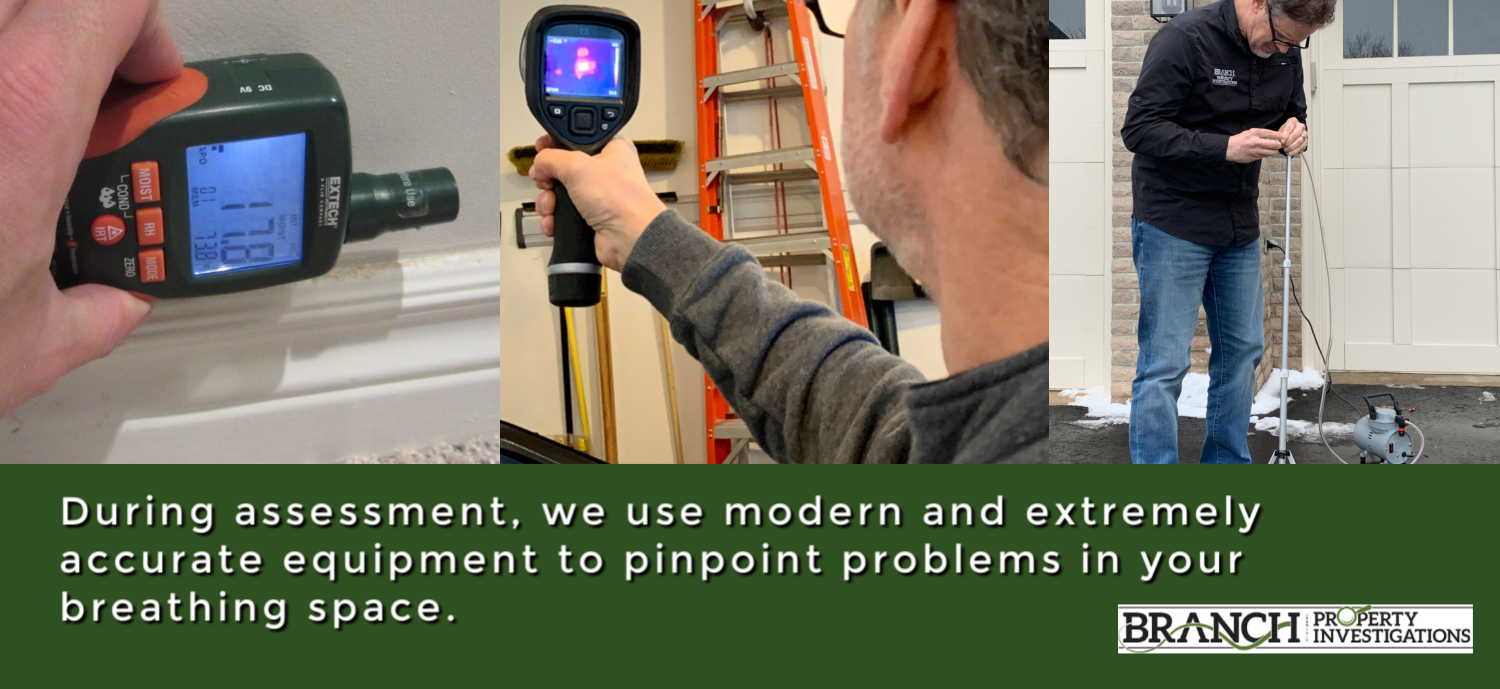Inhaling or touching mold may cause allergic reactions in sensitive individuals. If someone in your home has been ill without relief or explanation, testing for mold may be a wise idea. Also, if a medical health professional has detected symptoms that may indicate exposure to mold, further investigation and mold testing often can find the unhealthy areas of a property. Branch Property Investigations performs mold testing in residential homes and commercial buildings. Our goal is to help you identify factors that may be compromising your indoor living (and breathing) space.
Is mold causing my health problems?
Mold definitely has the potential to cause health-related issues. Mold produces allergens, irritants, and in some cases, potentially toxic substances (mycotoxins). Inhaling or touching mold or mold spores may cause allergic reactions in sensitive individuals.
Allergic responses include hay fever-type symptoms, such as sneezing, runny nose, red eyes, and skin rash (dermatitis). Allergic reactions to mold are common. They can be immediate or delayed. Mold can also cause asthma attacks in people with asthma who are allergic to mold. In addition, mold exposure can irritate the eyes, skin, nose, throat, and lungs of both allergic and non-allergic people. It is important to see a healthcare provider familiar with the health impacts of mold exposure if you believe mold is causing a health problem.
Why is mold growing in my home?
Mold reproduces by means of tiny spores; the spores are invisible to the naked eye and float through outdoor and indoor air. Mold may begin growing indoors when mold spores land on surfaces that are wet. Indoor mold is often found when moisture levels rise above 60% relative humidity in areas like attics, crawl spaces, basements and bathrooms. Note that even when the indoor air relative humidity is lower than 60%, the surface humidity may be higher in a localized area and mold growth can still occur. Building materials like sheetrock, particle board, baseboard and casing, and even organic material such as dirt and dust on inorganic surfaces can support mold growth. There are many types of indoor mold, and none of them will grow without water or moisture.
What does testing for mold look like?
During a mold and indoor air quality assessment, we do a visual inspection along with gathering data and samples from the home to investigate and/or send to a lab. When we send these samples to the lab, a toxicologist studies them and sends us the results in full detail. We are often able to see specifically what species of mold spore is in the air. We can also see how many spores exist per cubic meter. With all of this data, we create a report with clear, easy-to-read recommendations on how to alleviate the problem(s) to make your home or building a safer one.
What equipment is used for mold testing?
During assessment, we use modern and extremely accurate equipment to pinpoint problems in your breathing space. All of this is noninvasive to your home or building. Our equipment can include thermal imaging cameras, moisture meters for moisture mapping, professional hygrometers, air pumps at precise sampling rates for air samples, and swabs and tape lifts for surface sampling.
Why Choose Branch Property Investigations for Mold Testing?
So what makes our company unique? Tom Geoffroy applies 20+ years experience as a mold remediator and water loss specialist to identify likely locations for mold growth. If desired, we can perform a detailed moisture intrusion investigation of the entire home as an added service to mold testing. It is important to not only find the mold problem but also understand why it is growing. Then, you can eliminate the moisture source so it won’t reoccur. We don’t perform remediation work so we don’t have any conflicts of interest.
Is a 100% mold-free space possible?
No, mold is ubiquitous; you can expect to have invisible air-borne mold present anywhere you go, both indoors and out. However, if you suspect mold to be the potential source of health problems, we recommend mold testing. If necessary, implementing remediation protocols would be the next step.
We can help! Call us at (612) 440-8466 to schedule mold testing or a more comprehensive moisture intrusion investigation or book online at branchinvestigations.com.
